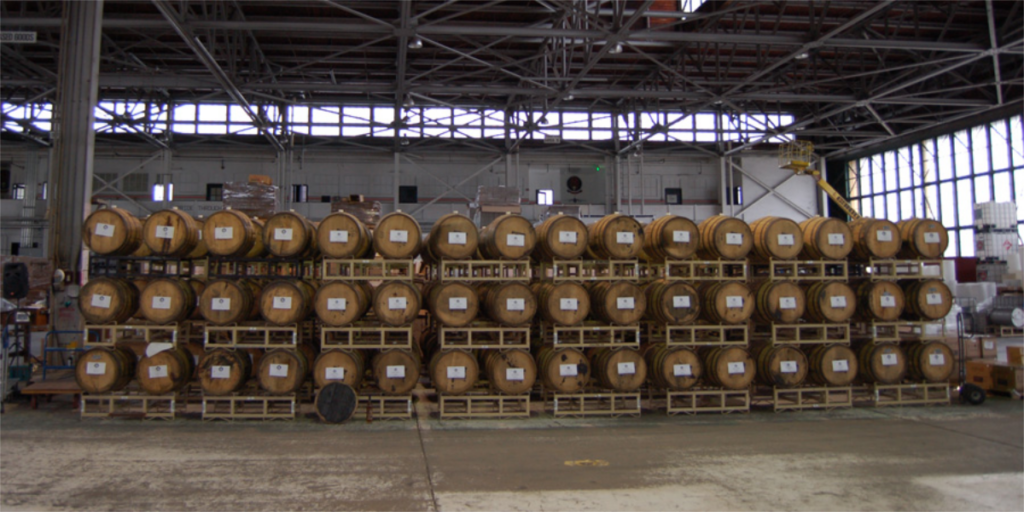What Beverage Manufacturers Should Know About Opportunity Zones

Beverage manufacturers–breweries, distilleries, and wineries–are ideally suited to bring valuable investment to rundown neighborhoods and distressed communities. These are the exact areas targeted by the Opportunity Zone tax incentives created by the 2017 Tax Cuts and Jobs Act. Some new and existing beverage manufacturers might benefit from locating in “O-Zones.”
High Interest in O-Zone Investments
For a limited time period, certain investors can reduce or completely avoid capital gains taxation when they invest in companies (called Qualified Zone Funds or “QOFs”) that make new investments in O-Zones. This has generated a lot of interest among investors around the United States. Thousands of O-Zones exist around the country, in both rural and urban areas. Florida alone has 427 designated O-Zones, and they are in every county (map).
The regulations about investments in O-Zones are extremely complicated, but beverage manufacturers should know the following three things.
First: Tax Benefits are for the O-Zone Investor, not the Beverage Manufacturer
At its most basic, the O-Zone tax incentives work like this:
- Investor sells property (like real estate, stock, or a business) he or she already owns at a higher price than Investor paid for it, resulting in a capital gain.
- Ordinarily, Investor would pay taxes on the amount of the capital gain at a rate up to 20%, and the taxes would be due with Investor’s next annual tax return.
- However, if Investor invests the funds received from sale in a QOF company, then he or she gets certain tax benefits:
- Investor does not have to pay capital gains tax until 2026.
- Capital gains tax is reduced after Investor has held the QOF investment for 5 years and reduced again after 7 years.
- If Investor holds the QOF investment for 10 years, the capital gains tax is completely excluded.
- Investor must invest in a QOF company within 180 days after the sale that generated the capital gain.
Without question, this is a huge benefit for Investor. But this does not directly benefit the QOF company. The QOF company does not get a tax break. However, a beverage manufacturer that qualifies as a QOF company (see below) may be able to attract investments from investors looking to take advantage of the O-Zone tax incentive.
Second: Only New or Expanding O-Zone Property Qualifies
Beverage manufacturers that were located within O-Zones prior to 2018 may have a hard time qualifying for the O-Zone tax incentive. To qualify, the QOF company must first make use of a O-Zone property after December 31, 2017, or must substantially improve the O-Zone property after that date. Also, the acquisition of the O-Zone property must be from an unrelated seller. These rules create some winners and losers.
Winners:
- Beverage manufacturers that did not exist before 2018
- Existing beverage manufacturers that are expanding into an O-Zone
- Beverage manufacturers that are substantially improving O-Zone property
Losers:
- Beverage manufacturers located in an O-Zone prior to 2018 with no plans for substantially improving the O-Zone property
Third: Package Stores are Prohibited
The O-Zone regulations specifically provide that qualified O-Zone property does not include “stores the principal business of which is the sale of alcoholic beverages for consumption off premises.” This should not negatively impact beverage manufacturers that would otherwise qualify as QOF companies with new or substantially improved O-Zone property. Even where beverage manufacturers are allowed to make package sales under state law, it’s unlikely that package sales would be seen as their principal business. However, every situation is different, and beverage manufacturers, and their investors, should be aware that this prohibition exists.
Are you trying to understand whether your existing or planned beverage manufacturer could benefit from the O-Zone tax incentives? We’d love to discuss it with you. Contact us at contact@brewerlong.com to schedule a consultation with a beverage attorney.
Because we’re attorneys: This blog post is provided on an “as is” and “as available” basis as of August 11, 2019. We disclaim any duty to update or correct any information contained in this blog post, including errors, even if we are notified about them. To the fullest extent permitted by law, we disclaim all representations or warranties of any kind, express or implied with respect to the information contained in this blog post, including, but not limited to, warranties of merchantability, fitness for a particular purpose, title, non-infringement, accuracy, completeness, and timeliness. We will not be liable for damages of any kind arising from or in connection with your use of or reliance on this blog post, including, but not limited to, direct, indirect, incidental, consequential, and punitive damages. You agree to use this blog post at your own risk. Regarding your particular circumstances, we recommend that you consult your own legal counsel–hopefully BrewerLong.

